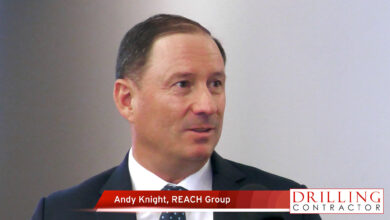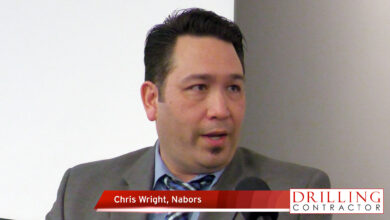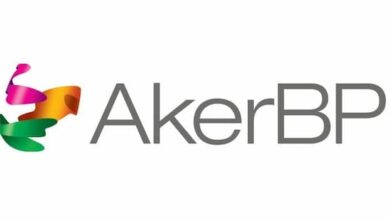IADC launches WellSharp Well Servicing accreditation program
Going live on 1 April, program to offer four standalone courses at supervisory level, generalist course for operator representatives and a subsea supplement
By Linda Hsieh, Managing Editor

To instigate a step-change in the prevention of well control events during well servicing operations, IADC is launching the WellSharp Well Servicing accreditation program to replace the legacy WellCAP Well Servicing program. The new program will go live on 1 April after more than two years in development. “By 1 April, training providers will stop teaching WellCAP Well Servicing,” Mark Denkowski, IADC VP of Accreditation Operations, said. So far, close to half of all training providers who are accredited under WellCAP have either already converted to or started the application process with WellSharp.
The new WellSharp Well Servicing follows in the steps of the WellSharp program for drilling operations, which was launched in July 2015. Like the drilling program, the well servicing program offers an electronic testing process, with a database of questions managed by IADC. The online testing system allows IADC to monitor every test given to every student worldwide, allowing for quick responses to any issues and easy identification of areas needing improvement. The testing will be independently proctored.
The fundamental-level course that was offered under WellCAP will no longer be available. Instead, WellSharp will offer four standalone courses, all at the supervisory level: coiled tubing, snubbing, wireline and workover. Compared with WellCAP, the new courses are far more comprehensive and feature new learning objectives, Mr Denkowski said.
Further, these disciplines cannot be blended into one course, as each course targets operators of that specific type of equipment. “These courses are role-specific. Coiled-tubing operations are significantly different than snubbing operations, for example. It doesn’t make sense to combine these different disciplines into one course.”

WellSharp also will offer a brand-new course, Oil and Gas Operator Representative Workover and Intervention Well Control. This course was created at the request of multiple oil companies who saw the need for a more “generalist” course for companymen or wellsite leaders. These positions are responsible for the oversight of coiled tubing, snubbing, wireline and workovers, not their actual operations.
Another addition under WellSharp is the Subsea Supplement, which covers through-BOP/drilling riser intervention, open-water intervention riser and hydraulic intervention. It can be added to either the Workover course or the Oil and Gas Operator course.
Development of WellSharp Well Servicing spanned more than two years, with content written by an IADC workgroup comprising representatives from more than 50 companies, including BP, Chevron, Shell and Noble Drilling. “For 65 consecutive weeks, the workgroup held at least one meeting and, in some weeks, two meetings,” Mr Denkowski said. “It was an unprecedented effort.”
The workgroup operated in collaboration with the IADC Well Control Committee and the WellSharp Advisory Panel, all of which recognized a critical need to improve well control training in the well servicing sector. The effort was also supported by the Association of Energy Service Companies (AESC).

“The problem as we see it is that the well servicing businesses are one incident away from the training being made mandatory, either by governmental regulations or other means,” AESC President Kenny Jordan said. “If our industry has an issue on a well that ends in catastrophic loss of human life, environmental, or property damage that is significant, then regulators, either state or federal, are going to step in.” It makes sense for the industry to have programs, like WellSharp Well Servicing, in place in case such regulatory mandates are made. “The last thing we want as an industry is to be dictated to in terms of regulations by officials who don’t know our business.”
Drilling contractors are also not immune to the impacts of any potential loss of well control during well servicing, as such operations often take place on the floor of a drilling rig. This means that any well control event originating from the well servicing operation could put drilling contractors’ personnel and assets at risk.
Moreover, “if a well servicing company has a major incident, it affects the entire industry,” Mr Denkowski said.
Pilot courses of WellSharp Well Servicing have been under way with several companies, including BP, Chevron and Wild Well Control, since mid-February. DC
For more information about the WellSharp Well Servicing program, please contact wellsharp@iadc.org.




